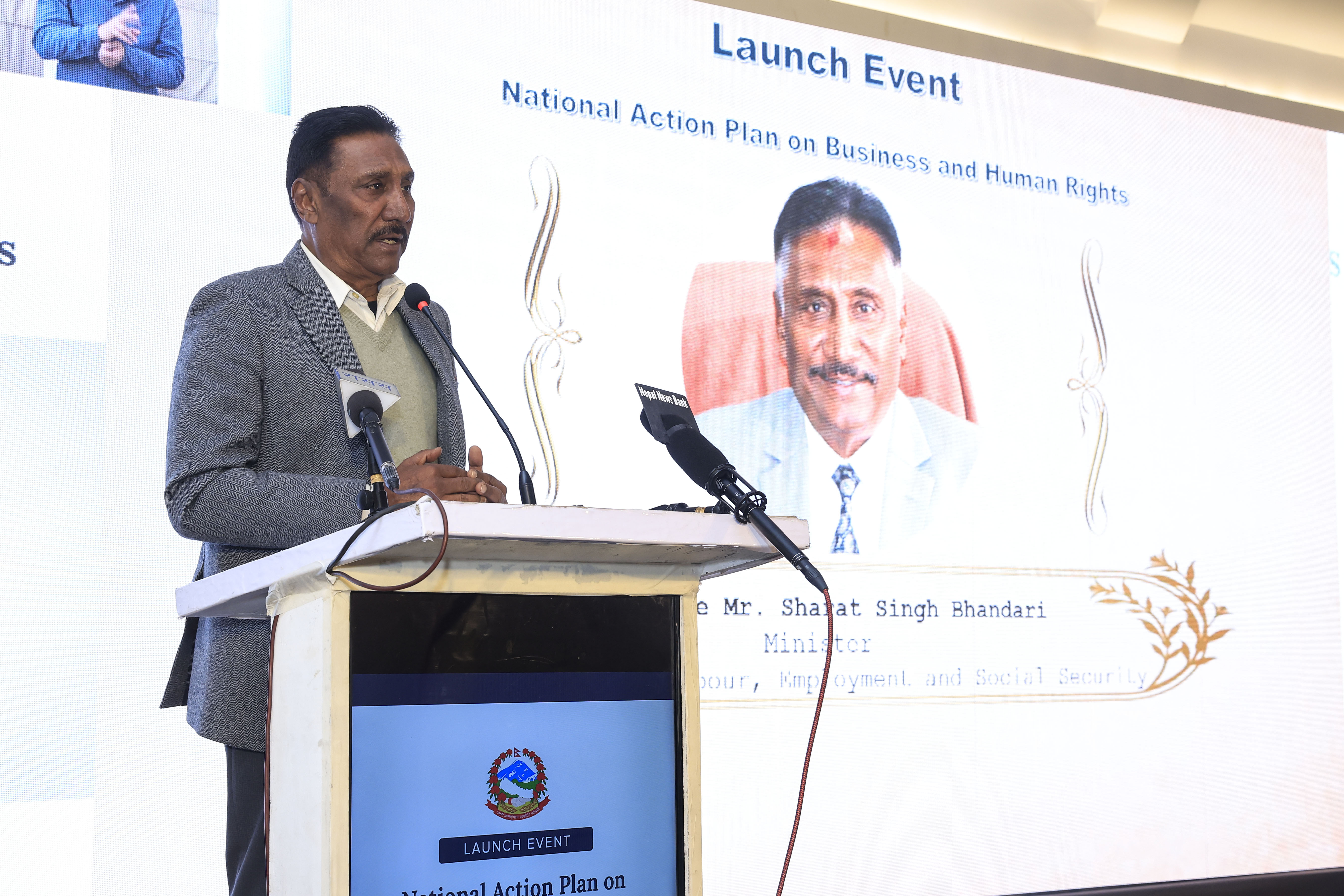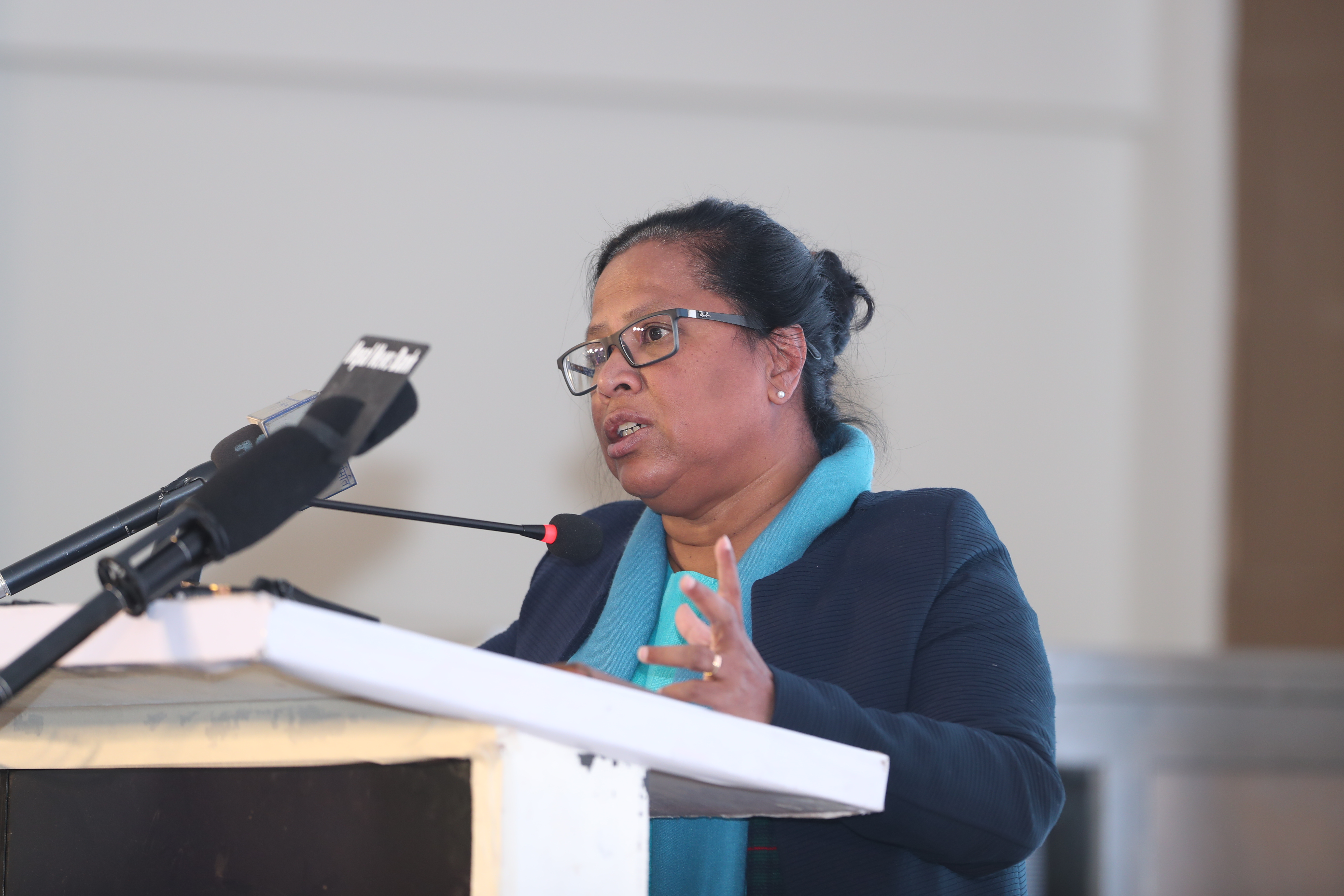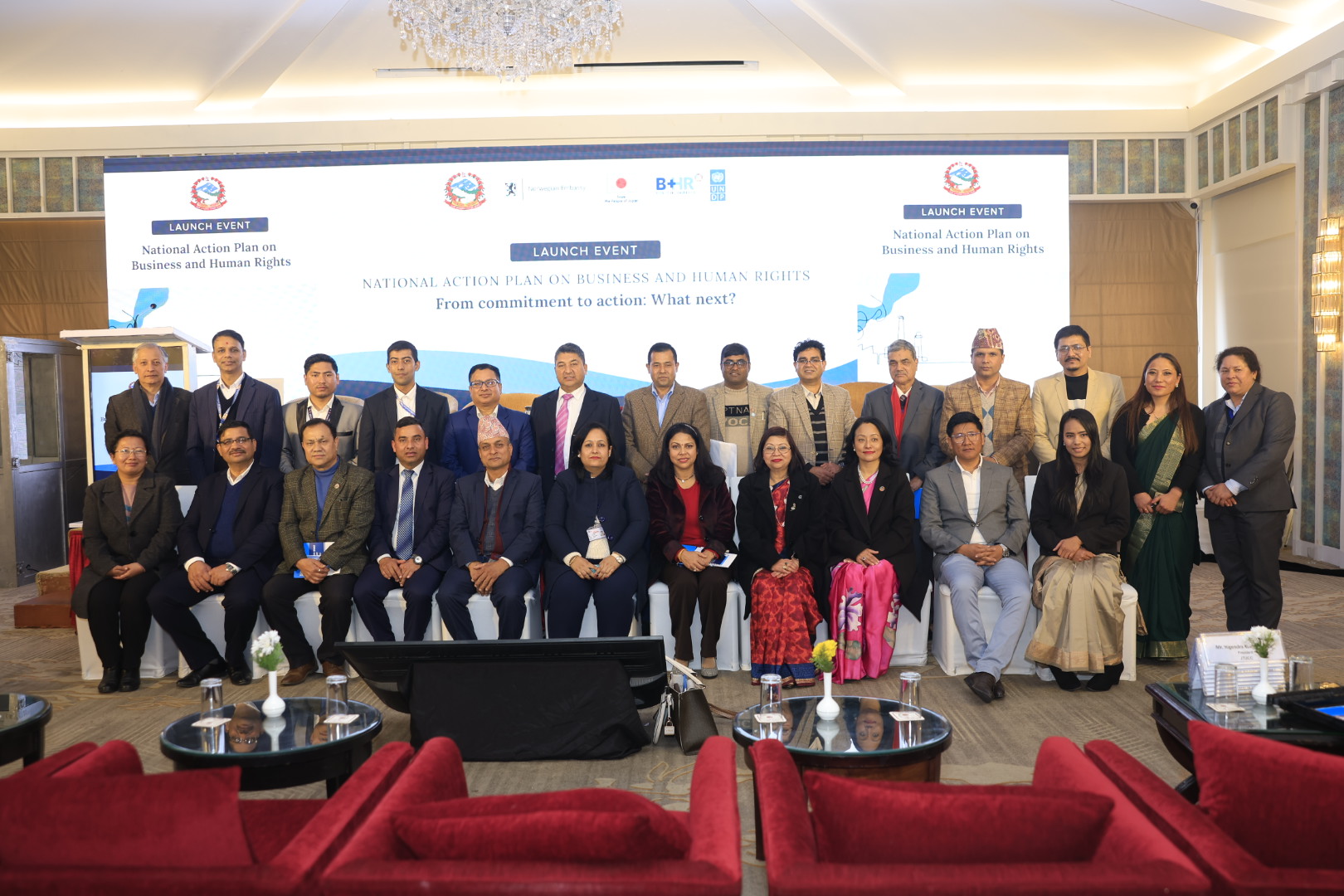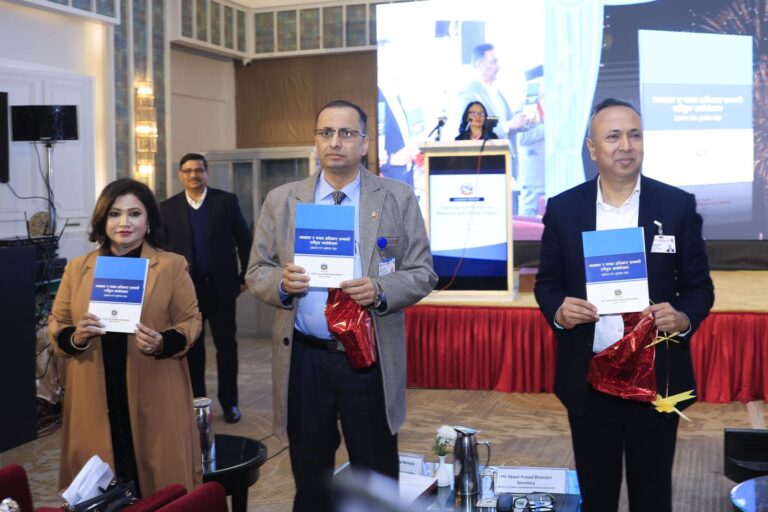Kathmandu, January 23. The Ministry of Labour, Employment and Social Security (MoLESS), Government of Nepal, launched the National Action Plan on Business and Human Rights, marking an important milestone towards promoting responsible business and strengthening human rights standards in the country.
The National Action Plan (NAP), approved by the Government on 27 December 2023, is a clear commitment by the Government of Nepal to promote economic development while safeguarding the rights of its people and the environment. The NAP will be effective for five years from 2024 to 2028. This makes Nepal the second country in South Asia and the 41st in the world to adopt the strategic framework.

The NAP was launched by Minister of Labour, Employment and Social Security, H.E. Sharat Singh Bhandari during an event in Kathmandu. Speaking at the event, Minister Bhandari said, “The private sector impacts the daily lives of everyone in Nepal. For this reason, it is important to ensure that companies respect human rights throughout their business activities.”
The NAP was developed in line with national human rights provisions and commitments, as well as international human rights standards such as the United Nations Guiding Principles on Business and Human Rights (UNGPs), the most authoritative and widely adopted principles for responsible business, unanimously endorsed by the UN Human Rights Council in 2011. The NAP outlines the obligations expected of the Government of Nepal and businesses to respect, protect and fulfill human rights through a comprehensive set of actions across six thematic areas: labor rights, migrant worker rights, consumer protection, environment and indigenous peoples' rights, women's and children's rights, non-discrimination, and gender and social inclusion.
During the event, there was a unanimous call for cooperation and coordination for the successful implementation of the NAP. “We hope that this National Action Plan will strengthen standards and practices on business and human rights and bring tangible results to affected individuals and communities, thereby contributing to socially sustainable globalization,” said Toshiya Endo, First Secretary of the Embassy of Japan in Nepal.

“This milestone marks a clear opportunity for diverse stakeholders to come together to strengthen responsible business through a collaborative process over the next five years,” said Aishanee Medagangoda Rabe, UNDP Resident Representative in Nepal. “UNDP remains committed to supporting the Government of Nepal in implementing the NAP,” she added.
The NAP aims to help companies manage human rights risks within their operations and supply chains and prepare them for the accelerating global transition towards responsible business conduct.
Major economies around the world are increasingly taking action to promote responsible supply chains, such as through the Japanese Government's Guidelines on Respecting Human Rights in Responsible Supply Chains and the European Union's Corporate Sustainability Due Diligence Directive. The adoption of the NAP by the Nepalese Government sends a strong message to investors that Nepal is a good place to do business.
The NAP is the outcome of collaboration between MoLESS in Nepal and UNDP and other partners, with the support of the Government of Japan and the Government of Norway. Prior to embarking on the individual action plans, the initiative was initially identified as one of the key actions in the National Human Rights Action Plan introduced by the Government of Nepal in 2020. As a follow-up intervention, the Government set up a task force under the leadership of MOLESS, including representatives from the Prime Minister’s Office, Ministry of Law, Ministry of Commerce and Industry, MOLESS and the Federation of Nepalese Chambers of Commerce and Industry. The joint effort adopted a rigorous participatory approach, including a series of consultative workshops, focus group discussions, validation, online feedback collection, thematic expert discussions, evaluation and technical working group discussions, and invited feedback on the draft action plan from business, civil society organizations (CSOs), international experts and others to ensure its quality and effectiveness.
***


